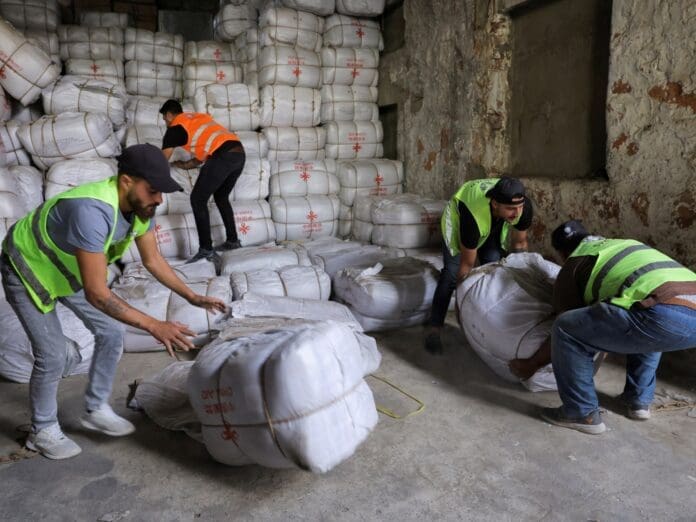Yara Adada, 28, is the sole occupant of her bakery and coffee shop in the bustling Gemmayze neighborhood of Beirut, Lebanon. As tensions rise between Hamas and Israel, businesses like Adada’s have seen a significant decrease in customers and fears have emerged that Lebanon could be drawn into a war with Israel. Adada’s coffee shop, which would typically serve 30 to 35 customers a day, now only sees 10 to 15 on a good day. Moreover, flights to and from Beirut have been cancelled or scaled back, and many countries have issued warnings urging their citizens to leave Lebanon. This has negatively impacted the country’s tourism-based economy. The restaurant sector has experienced an 80 percent drop in business, while tourism, which contributes 20 percent to Lebanon’s GDP, has been severely affected. The ongoing conflict has also raised concerns about Lebanon’s food security and access to basic commodities. Lebanon’s reserves of food, fuel, and medicine are currently only enough to last for two to three months, instead of the usual year. The lack of reserves is due to the destruction of the Beirut port and the country’s reliance on imports. The ongoing financial crisis and the slow implementation of reforms have added to Lebanon’s economic challenges. Despite the difficulties, Adada remains determined to keep her business open and support the struggling economy, but worries about the impact on her employees and other businesses. She sympathizes with the Palestinian people but understands the potential consequences for Lebanon. The situation in the country is complex and uncertain.
